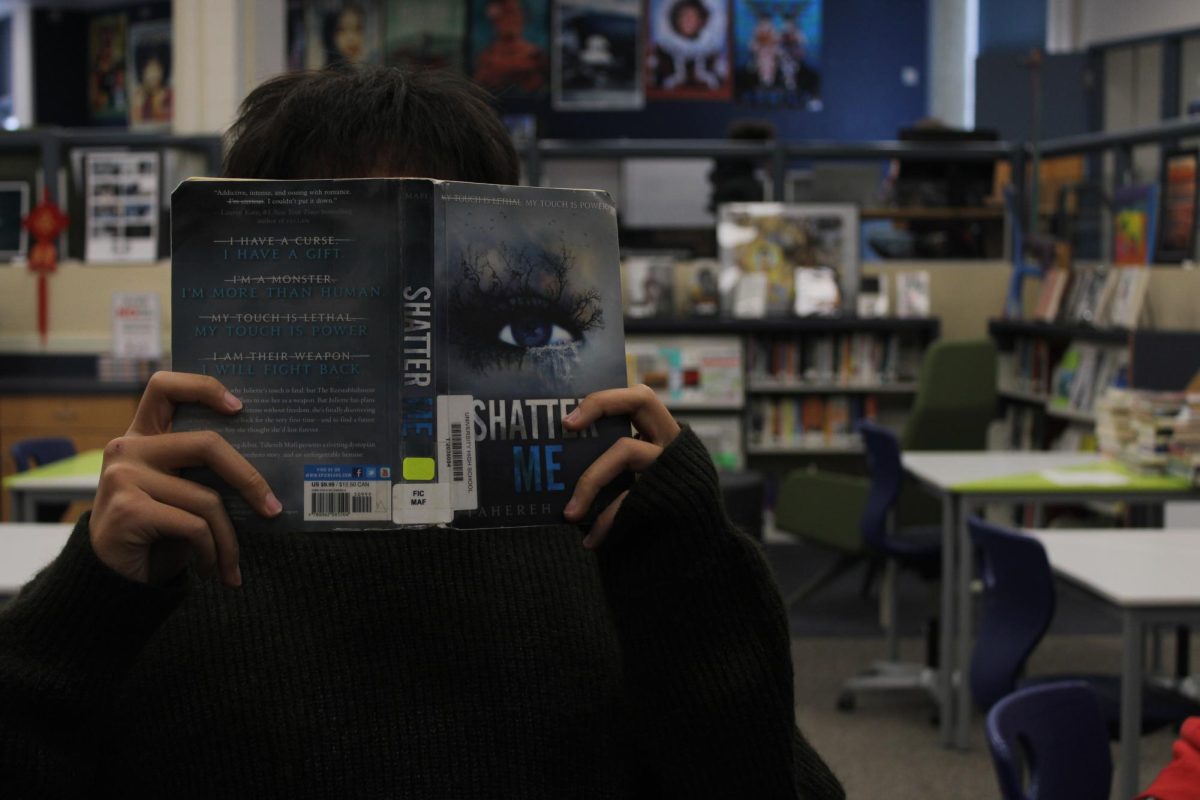
By MINA RHEE
Staff Writer
Much of the work of John Green, the famous young-adult fiction writer, deals with the trope of the Manic Pixie Dream Girl (MPDG), as seen in his popular novels Looking for Alaska and Paper Towns. Both follow similar patterns: a teenage boy, unsure of his place in life and disappointed by his own ordinariness, is swept up by the antics of a spontaneous, intense, quirky girl who adds adventure to his otherwise uneventful life, inspiring him to see the world differently.
The rest of the novel is about said boy trying to “find” said girl, both literally and metaphorically, after she disappears at some point in the book. The term MPDG was coined by literary critic Nathan Rabin to describe a female character depicted as vivacious and appealingly quirky, whose main purpose within the narrative is to inspire greater appreciation for life in a male protagonist. Since then, the MPDG trope has been additionally criticized for being sexist and harmful to female agency, relegating these female characters as props in narratives of male self-discovery.
John Green has admitted that Looking for Alaska contains elements that echo the MPDG trope, something that he wanted to correct and purposely addressed in Paper Towns. On his blog, johngreenbooks.com, he said, “I felt in many ways I’d failed in [Looking for Alaska] to adequately address the danger of imagining our romantic interests as something more or greater than human… Paper Towns was partly inspired by the desire to respond to those gender constructions, and more generally to the problem of imagining others complexly.”
He also made it clear that Paper Towns is meant to subvert the MPDG trope and criticize how romantic interests can lead someone to idealize and therefore dehumanize another person. As he wrote, “Paper Towns is a novel about the problem of imagining other people as manic pixie dream girls.” In Looking for Alaska, Alaska, the female romantic interest of the male protagonist, Miles, clearly conforms to the dream girl trope: she wanders into Miles’s life, filling it with vibrant spontaneity and reckless adventure and then tragically dies halfway through the novel, inspiring Miles’s angst-filled search for some greater truth.
What differentiates the dynamic between Miles and Alaska from that of Quentin and Margot (the male protagonist and dream girl of Paper Towns) is that Quentin, unlike Miles, during his journey to find her, realizes that his idealized fantasy of Margot is flawed. It is clear that Green recognized the harm of Miles’s continued illusion of Alaska – that she was some sort of inexplicable, mysterious phenomenon rather than another human being – and addressed the issue in Paper Towns by focusing on Quentin’s gradual realization that Margot is actually a flawed human herself.
However, this difference is not enough to fully subvert the MPDG trope, and by failing to recognize exactly why this trope is so hurtful for women, Green ultimately recreated parts of it. Margot is still a character that exists purely for the personal growth of the male character, Quentin. Even though she is humanized, she is humanized through the eyes of the male character Quentin, to aid in his own personal development. Margot thus exists as an agent of Quentin’s moral development, not her own. Green wrote that he feels “the nature of the story arc in Alaska makes it difficult to give Alaska, as a character, the agency she deserves.”
Despite his intention to provide his female characters agency, however, the same problem is still present in Paper Towns because the plot of the novel is essentially about Quentin’s redemption. Having a male character recognize a female character’s agency is not the same as actually giving that female character agency. If anything, it only further affirms the male character’s agency and humanity at the expense of the female’s, as her humanity becomes contingent on the male’s recognition of her as such.
Considering how Margot in Paper Towns disappears a quarter of the way through the book and only reappears at the end to provide an adequate resolution to Quentin’s moral development, it’s difficult to see how Green gives Margot any agency in the novel, as her appearances and actions are dictated by a plot arc centered on the emotional needs of the male protagonist. Although Quentin might finally recognize Margot as a complex human being at the end of the novel, the novel itself does not give Margot this same recognition. As readers, we are never given a full explanation of her motivations, as we only view Margot through the distorted lens set upon her by Quentin, the narrator.
Even when Quentin realizes that Margot is not the idealized, fantastic girl whom he had imagined, we as readers do not learn anything past that – we are only presented with what Margot is not – nothing about who she actually is. Even though readers do recognize that idealizing others is wrong (an explicit theme in Paper Towns) the novel still relegates Margot, the MPDG figure that it tries to humanize, to a secondary status. Beyond its literary detriments, the MPDG trope is harmful because it reinforces the idea that women are useful only in relation to men, as their sole purpose is to further a male-centered narrative. This is a second and just as problematic part of the gender trope that Green fails to recognize and therefore recreates within the structure of Paper Towns.
So, whether Alaska or Margot, the female protagonists in John Green’s novels remain simply props – fantasies or not – that serve only the superficial purpose of enhancing the males’ lives.















savvy • Apr 12, 2022 at 1:48 pm
YES! I’m writing a media critique of his books in a college class, and I am so grateful you wrote this. Articulated a lot of feelings I have had about his books very well!